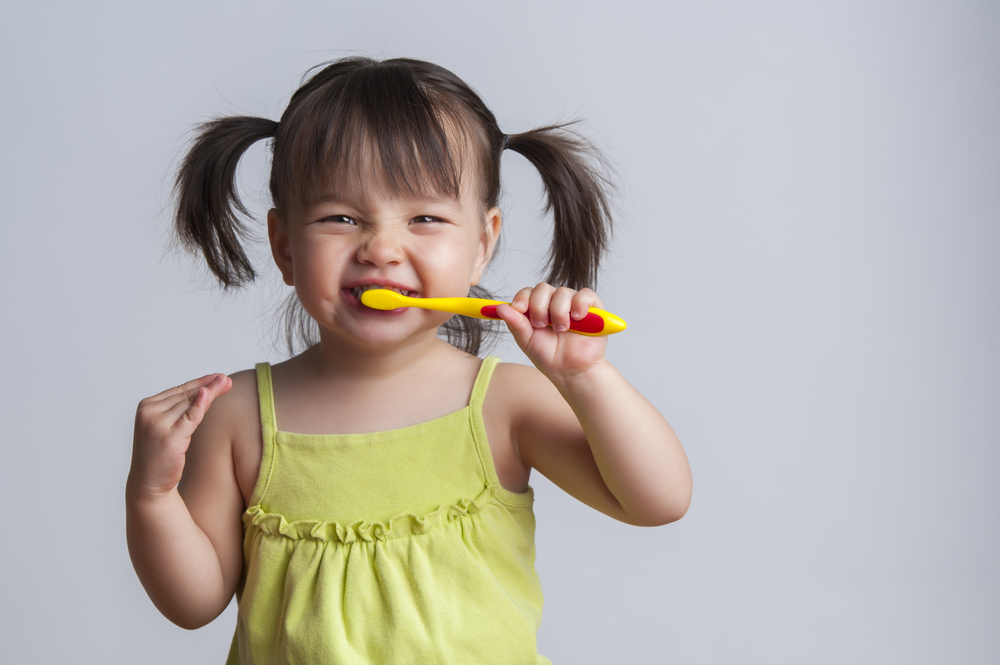Supporting the oral health of young children
Published on Tuesday, 03 April 2018
Last updated on Wednesday, 22 January 2020

A new poll by the Royal Children's Hospital (RCH) has shown that one in three Australian children do not brush their teeth twice a day and one in ten have had at least one decayed tooth pulled out before they turn nine years old.
The RCH National Child Health Poll also revealed that one in three preschoolers have never visited a dentist and many well-meaning parents are confused about how to keep their children's teeth healthy.
Director of the RCH National Child Health Poll, paediatrician, Dr Anthea Rhodes said that creating good habits could prevent many common dental problems.
"Brush teeth twice a day, visit the dentist at least once a year for check-ups from age one, and choose a tooth friendly diet, including drinking tap water instead of sugary drinks. These simple things will help set your child up for a lifetime of good oral health," she said.
While overall responsibility for oral health rests with parents, there's plenty that early childhood services can do to support good dental health habits among young children. This includes:
- Developing oral health policies and procedures in line with accepted best practice and evidence based guidelines.
- Recording contact details for children's dental practitioner on enrolment.
- Advising parents to take their child for a check-up at the dentist at least once a year from age one and telling parents if staff notice any sign of tooth decay, such as swelling, injury to teeth, bleeding in gums, pain when chewing etc.
- Maintaining age appropriate oral health resources and books to encourage interest and awareness among children.
In addition early childhood services can support good oral health by:
- Offering fluoridated water as a preference to any other beverage
- Providing food which encourages children to chew (rather than simply swallow)
- Limiting the number of sugary snacks available to children. This includes food high in simple carbohydrates, such as chips, crackers and sweet biscuits, as these foods are quickly converted to sugar.
- Encouraging children who are old enough to rinse their mouth out with water after meals and snacks
- Implementing a tooth brushing program
In addition to supporting and promoting good oral hygiene, educators should also be trained to deal with a dental emergency. The Little Smiles dental health resource offers the following guidance for early childhood professionals:
Step 1
- Remain calm and try to find the tooth. A dental professional will want to see the tooth and/or the tooth fragment(s). It is important to know whether the tooth or tooth fragment(s) has been inhaled.
- Inhaled teeth are a medical emergency and the child MUST be taken immediately to the Emergency Department of a Hospital for a check-up and a possible chest x-ray.
Step 2
- If a baby tooth has been knocked out, do not put it back in the socket because it will damage the underlying developing permanent (adult) tooth. Children aged 0-5 years are more likely to have baby teeth than permanent teeth. If there is any doubt about whether it is a baby tooth or an adult tooth, put the tooth in milk or saline and take the child to a dental clinic immediately.
- If a permanent tooth has been knocked out, place it in milk or saline immediately to avoid dehydrating and damaging the delicate cells on the root. Do not rinse or scrub dirt off the tooth. Do not allow the tooth to remain dry at any stage.
- Notify parents / carers of the incident.
- Go to a dental clinic or the Emergency Department of a Hospital as soon as possible. Time is a critical factor in saving the tooth.
Bringing a dentist to your centre
Spunky Monkeys Early Learning Centre in NSW has gone the extra mile in terms of promoting oral health among the young children in their service, and recently arranged for a dentist to visit the centre.
Children had the opportunity to sit in a dental chair and experience a basic inspection. This incursion facilitated by Dental Medical Mobile Services Group linked closely to the NQS and EYLF covering NQS Area 2: Children's Health And Safety; Element 2.1 Health and NQS Area 6: Collaborative Partnerships With Families And Communities; Element 6.2.3 Community engagement as well as Outcome 3: Children Have A Strong Sense Of Wellbeing. Children take increasing responsibility for their own health and physical wellbeing.
Centre coordinator Joanne Robson said the visit was in line with the NSW's community fluoride strategy which works collaboratively with key partners such as early childhood centres and schools to implement strategies which improve the oral health of the NSW population.
"The dentist set up a chair, and light and all equipment and the children were able to have their teeth examined and basic dental hygiene practices explained," she said.
Learn more
NSW Little Smiles Dental Health Resource Package for Childcare Professionals
Related Articles

Establishing a great night routine for your family
We often think of a night routine as involving tooth-brushing, book-reading, and lights out, however, a good routine can start from the moment your family gets home from work, school, or child care.

